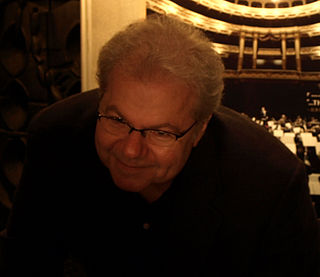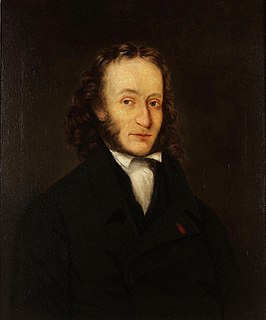A Quote by Emanuel Ax
Mozart often wrote to his family that certain variations or sections of pieces were so successful that they had to be encored immediately, even without waiting for the entire piece to end.
Related Quotes
On December 12, 1829, Paganini wrote his friend Germi: "The variations I've composed on the graceful Neapolitan ditty, 'Oh Mamma, Mama Cara,' outshine everything. I can't describe it!" He was writing from Karlsruhe, in the midst of his triumphal tour through Germany. That letter marks the earliest known mention of the variations that would become famous as "The Carnival of Venice." At the time of his letter, Paganini had already performed the piece in at least four concerts. From then on, it would be one of his most popular compositions.
I have been told that a young would-be composer wrote to Mozart asking advice about how to compose a symphony. Mozart responded that a symphony was a complex and demanding form and it would be better to start with something simpler. The young man protested, 'But, Herr Mozart, you wrote symphonies when you were younger than I am now.' Mozart replied, 'I never asked how.
What attracted me about my mirrors was the idea of having nothing manipulated in them. A piece of bought mirror. Just hung there, without any addition, to operate immediately and directly. Even at the risk of being boring. Mere demonstration. The mirrors, and even more the Panes of Glass, were also certainly directed against Duchamp, against his Large Glass.
There [DreamTigers by Jorge Luis Borges] were these little fablesque things, you know, dream tigers, beautiful, beautiful pieces that when you read them had the power of a long piece, but they were prose, and they had the power of poetry, in that the last line wasn't the end, it was a reverberation, like when you tap on a glass made of crystal, and it goes ping.
The secret of it all, is to write in the gush, the throb, the flood, of the moment – to put things down without deliberation – without worrying about their style – without waiting for a fit time or place. I always worked that way. I took the first scrap of paper, the first doorstep, the first desk, and wrote – wrote, wrote…By writing at the instant the very heartbeat of life is caught.
This is a world that is much more uncertain than the past. In the past we were certain, we were certain it was us versus the Russians in the past. We were certain, and therefore we had huge nuclear arsenals aimed at each other to keep the peace. That's what we were certain of... You see, even though it's an uncertain world, we're certain of some things. We're certain that even though the "evil empire" may have passed, evil still remains.
I've loosened up over the years about materials. I started off working for Matthew Barney, and that's what his mentality is. Even while we were making pieces, like a mold, the mold would make sense conceptually with the piece. That's how deep his symbology goes. I've loosened up over the years because I very much had that mentality.



































